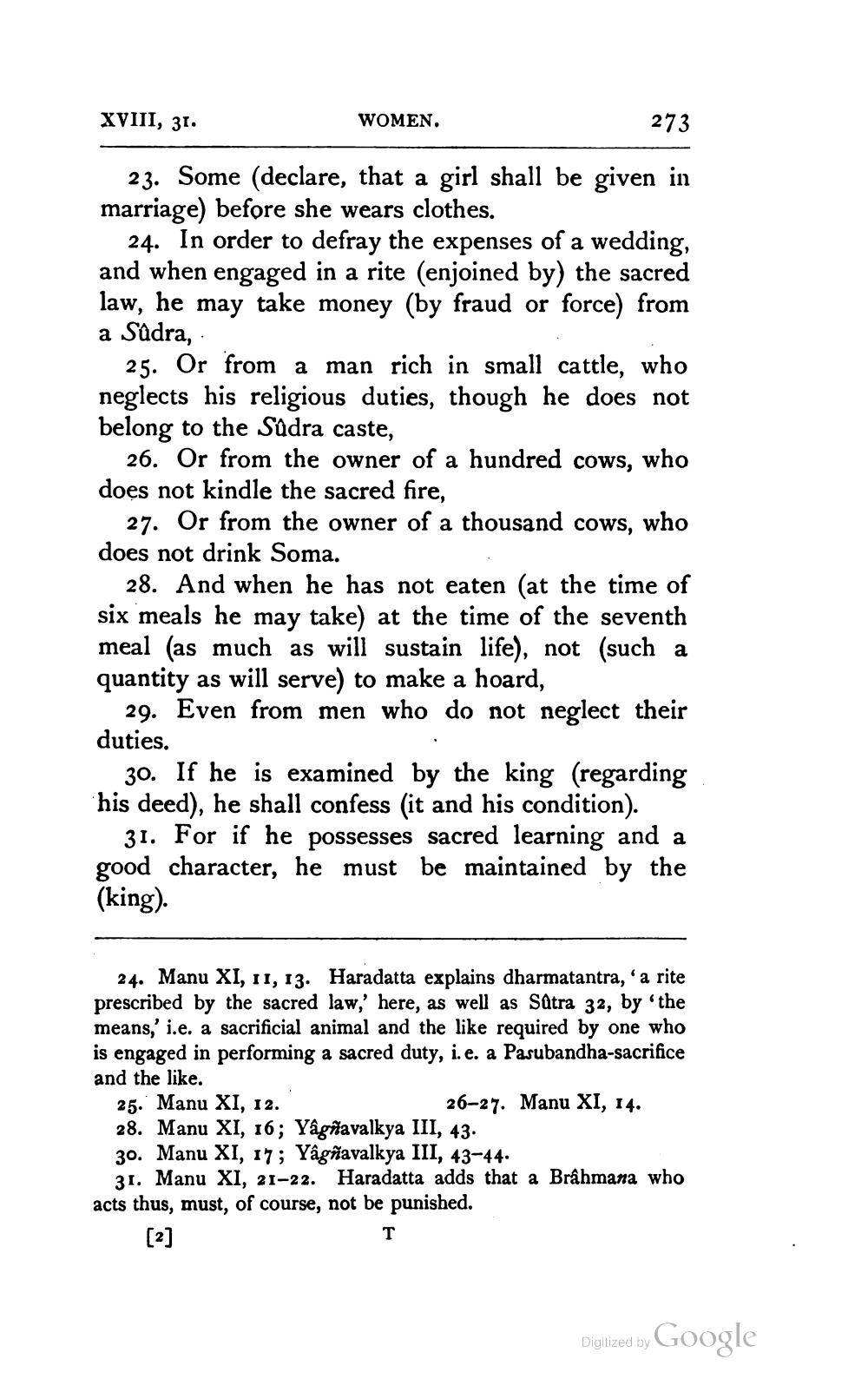________________
XVIII, 31.
WOMEN,
273
23. Some (declare, that a girl shall be given in marriage) before she wears clothes.
24. In order to defray the expenses of a wedding, and when engaged in a rite (enjoined by) the sacred law, he may take money (by fraud or force) from a Sudra,
25. Or from a man rich in small cattle, who neglects his religious duties, though he does not belong to the Sudra caste,
26. Or from the owner of a hundred cows, who does not kindle the sacred fire,
27. Or from the owner of a thousand cows, who does not drink Soma.
28. And when he has not eaten (at the time of six meals he may take) at the time of the seventh meal (as much as will sustain life), not (such a quantity as will serve) to make a hoard,
29. Even from men who do not neglect their duties.
30. If he is examined by the king (regarding his deed), he shall confess (it and his condition).
31. For if he possesses sacred learning and a good character, he must be maintained by the (king).
24. Manu XI, 11, 13. Haradatta explains dharmatantra, 'a rite prescribed by the sacred law,' here, as well as Sätra 32, by the means,' i.e. a sacrificial animal and the like required by one who is engaged in performing a sacred duty, i.e. a Pasubandha-sacrifice and the like. 25. Manu XI, 12.
26-27. Manu XI, 14. 28. Manu XI, 16; Yâgħavalkya III, 43. 30. Manu XI, 17; Yâgñavalkya III, 43-44.
31. Manu XI, 21-22. Haradatta adds that a Brâhmana who acts thus, must, of course, not be punished.
7
Digitized by Google




